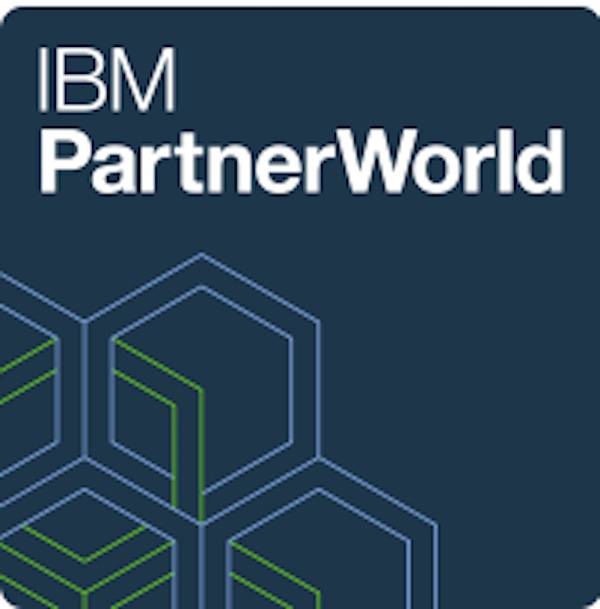IBM is changing the way it evaluates, rewards and incents partners. The underlying reason is twofold: IBM wants to modernize its programs to make them more compatible with a cloud services world, and it wants to reorient partners around its cognitive computing efforts known as Watson.
February 18, 2016

Big change is coming to IBM PartnerWorld, one of the largest ecosystems of MSPs, cloud service providers, IT consultants, VARs and more in the industry.
The company is changing the way it evaluates, rewards and incents partners. The underlying reason is twofold: IBM wants to modernize its programs to make them more compatible with a cloud services world, and it wants to reorient partners around its cognitive computing efforts known as Watson. To that end, the company is doing the following:
Shifting its emphasis from products and technologies to “competencies” or skillsets
Replacing its old partner classification labels with more familiar conventions
Investing in new skills training and enablement programs to drive new cloud sales
While the preceding sounds like a lot, it need not disorient or put-off partners, said IBM. “We wanted to make some significant changes but still provide predictability and consistency,” said Mike Gerentine, vice president of marketing, IBM Global Business Partners. The key takeaway from the changes announced this week at IBM PartnerWord underway in Orlando, he said, is that IBM is simplifying programmatics and taxonomy in a bid to help partners increase profits and help customers achieve greater satisfaction.
From Gerentine’s perspective, the changes start with new competencies, which will help IBM organize its programs, accreditation, education and more. The new competencies span all of IBM including its cloud, commerce, Watson, mobile and analytics business units, and will count toward helping partners achieve status within IBM’s PartnerWorld program. (The other two measures will be client references and revenue contributions.)
Today, IBM has identified eight key competencies that it will use as rallying points for training, certification, recognition and beyond. By the end of the year or so, the number will likely rise to more than 40, according to the company. The first eight are: cloud platforms, application run-time and development, data repositories and appliances, business-to-business integration, Watson fundamentals, server systems, systems storage and security.
What they lack in sex appeal they make up for in straightforwardness, said Gerentine. Come June, the company will announce another 20 or so competencies and guidelines for helping partners achieve them. Partners have until next January to attain all their desired competencies.
In conjunction with the shift to new competencies, IBM plans on replacing its exiting status framework, which ranks partners as either Members, Advanced Partners or Premier Partners, with one the defines partners as Registered, Silver, Gold or Platinum. The latter is a new level that only a relative handful (a few hundred) of global partners will likely achieve.
The important thing to note, from Gerentine’s perspective, is that partners of almost any size can qualify for significant status within PartnerWorld. So long as a partner attains a specific number of competencies and client references, they can reach almost any status within the PartnerWorld program.
Speaking of PartnerWorld, the program continues to grow. Today it counts more than 160,000 companies within the ecosystem worldwide, including more MSPs and cloud services providers than ever, said IBM.
Significant partner program redesigns are becoming an imperative for vendors looking to reflect today’s changing partner business models and needs—and with good reason. Consider a 2015 CompTIA study that found a sizeable number of U.S.-based channel firms are taking a close look at alternative vendors, including newer cloud players. Nearly half of channel firms in the CompTIA study described the state of their vendor relationships as either “exploratory” or “shifting,” meaning they are shopping around or have made a definitive switch already.
The reality is that revamping a partner program, even one as vaunted as PartnerWorld, may be less about wringing more out of partners and more about keeping them engaged.
“In a cloud-based world, conventional vendor rewards run the risk of becoming antiquated if not updated to reflect how partners make money today,” said Carolyn April, CompTIA’s senior director of industry analysis. “Staples such as upfront discounts and back-end rebates are declining in relative importance to channel partners that want to be rewarded more of the value they bring directly to customers.”
A growing number of partners today no longer garner the majority of their revenue from vendor-based margin on products or even services, but more so around their own managed services and consulting offerings, April said. As such, vendors are wise to craft programs that place value on those individual partner skills, as well as the partner’s ability to keep the end customer happy, she added.
About the Author(s)
You May Also Like


